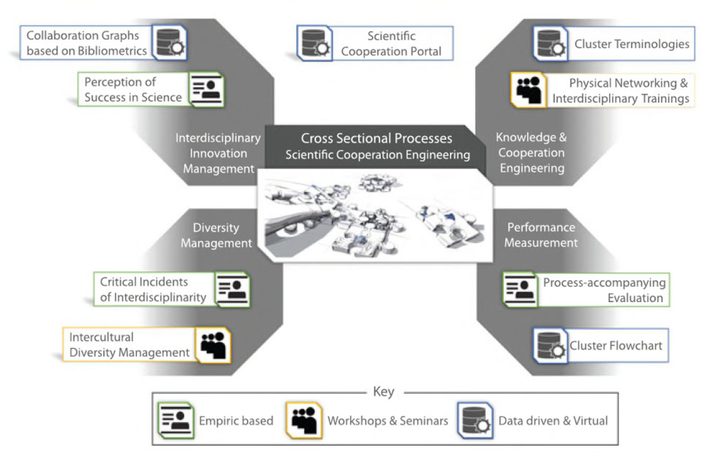
Abstract
Scientific Cooperation Engineering researches, fosters and supports scientific cooperation on all hierarchical levels and beyond scientific disciplines as a key resource for innovation in the Cluster of Excellence. State-of-the-art research methods—such as structural equation models, success models, or studies on success factors—that are frequently used in IS research are applied to create profound knowledge and insights in the contribution and optimal realization of scientific inter and trans-disciplinary communication and cooperation. A continuous formative evaluation is used to derive and explore insights into interdisciplinary collaboration and innovation processes from a management perspective. In addition, actor-based empirical studies are carried out to explore critical factors for interdisciplinary cooperation and intercultural diversity management. Based on these results, workflows, physical networking events and tailor-made training programs are created and iteratively optimized towards the cluster’s needs. As Scientific Cooperation Engineering aims to gain empirical and data-driven knowledge, a Scientific Cooperation Portal and a prototypic flowchart application are under development to support workflows and project management. Furthermore, data science methods are currently implemented to recognize synergetic patterns based on bibliometric information and topical proximity, which is analyzed via project terminologies.